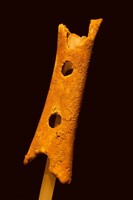 The lockdown continues. I've been job-hunting; binge-watching the Outlander TV series; and searching online for amusing memes about the coronavirus. It's even got to the point where I've stopped reading and started listening to as many ridiculously long audiobooks as I can find. Whoever came up with the idea of Kindles and audiobooks, thank you – they are a godsend. Paper books can be cumbersome to manoeuvre with one hand, especially the large ones. Hence, I tend to buy ebooks or audiobooks. As a result, I do miss out on the joy of seeing a full bookshelf, visually tracking my progress and that unmistakeable book smell. However, I have resigned myself to this as I would much rather read the story than spend my time sniffing pages! All this reading (or instead, listening) has got me into something of a philosophical mood, especially on those uniquely human aspects of life. Story-telling is an innate part of human nature, as is music-making. David Nabb, Professor of Music at the University of Nebraska Kearney, said: "I believe that music-making is a fundamental part of the human experience. Music-making is as human as chatting with a friend or falling in love." And this significant part of our psyche can be traced back to the Stone Age. The earliest confirmed homo sapiens-made musical instrument is a bone flute discovered in Germany, dating from 35,000-40,000 BP (before present). It is even possible that Neanderthals made music. In the nineties, archaeologists discovered what appeared to be a bone flute at a Neanderthal site in Slovenia, dating approximately 43,100 BP. If true, this artefact is the oldest known musical instrument in the world. Does this mean that the disabled among us have been missing out on an essential part of human existence? To quote David again: "Research tells us that students with disabilities have the same interests in music as their able-bodied peers." That someone needs to state this outright is poignant, particularly since music is fluid, adaptable and accessible to everyone. Apart from the necessity of playing the right notes at the right time, there is no hard and fast way in which you must make music - David himself plays the saxophone with one hand. "There are people all over the world who are just doing it their own way, in spite of the obstacles - nevertheless it's still music," he said. From personal experience, and from speaking with other disabled people, I know that some people question why we want to do something we cannot do. To me, this seems obvious: why would we not? That is, I admit, not much of an answer, so instead, I shall quote David's brilliantly simple reply: "Because I'm human." To me, these three words encapsulate the whole issue. Our bodies may not work in the same way as the majority of the human population, but we are still the same species, with the same instincts and the same history. |
CategoriesArchives
June 2024
|

 RSS Feed
RSS Feed
